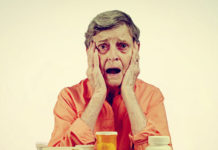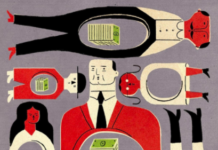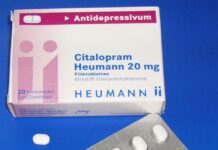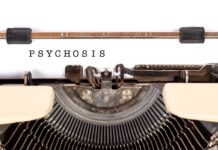Largest Survey of Antidepressants Finds High Rates of Adverse Emotional and Interpersonal Effects
I thought I would make a small contribution to the discussion about how coverage of the recent airline tragedy focuses so much on the supposed ‘mental illness’ of the pilot and not so much on the possible role of antidepressants. Of course we will never know the answer to these questions but it is important, I think, to combat the simplistic nonsense wheeled out after most such tragedies, the nonsense that says the person had an illness that made them do awful things. So, just to confirm what many recipients of antidepressants, clinicians and researchers have been saying for a long time, here are some findings from our recent New Zealand survey of over 1,800 people taking anti-depressants, which we think is the largest survey to date.
Opening Doors in the Borderlands: An Interview with Liberation Psychologist Mary Watkins
MIA’s Micah Ingle interviews Mary Watkins about reorienting psychology toward liberation and social justice.
The Scarlet Label: Close Encounters with ‘Borderline Personality Disorder’
To help my non-recovery oriented colleagues understand the stigma/resentment associated with ‘borderline personality disorder,’ I simply mention this: “Let’s say I call you and say, ‘Hey, I’ve got a referral for you. She’s been diagnosed with borderline personality disorder . . .’” I need to go no further; without fail, my colleague will smile or laugh. We both know that such a referral is a no-no, so much so that it doesn’t even have to be mentioned; it is a given.
How President Trump and Dr. Drew Got It Wrong on Deinstitutionalization
Compounding the lack of participation of former and current patients, a major theme of the summit was that Americans diagnosed with “serious mental illness” should not be able to make their own treatment decisions.
Michael Samuel Bloom
by Chaya Grossberg
July 25, 2012
He also told me the shrinks were changing around his drugs and adding more. They added an antidepressant or two to the Lithium and increased doses and eventually he seemed to have very little life left in him. Our phone calls became trying for he was so down, practically dead sounding a lot of the time, and I felt unable to do anything or say anything to make a difference. To even try felt futile and I wondered if talking to me at all was becoming the burden of yet another person he couldn't connect with.
In the early years, he liked to think of us as being in the same boat, both mentally ill, since I'd also had a meltdown and I also am extremely sensitive and go through extreme states. But as the years went by, especially towards the end, I seemed to be in the ever growing “other” camp in his eyes, which meant I was yet another person who didn't get what it was like to be him. And at that point I can confirm I did not, and perhaps did not want to.
Researcher Critically Examines Movements for Global Mental Health
China Mills raises concerns that global mental health movements obscure social determinants of health and naturalize Western mental health concepts.
New Book Deconstructs Ideology of Cognitive Therapy
CBT forwards a hyper-rational perspective of human suffering that complements a managerialist culture of efficiency and institutionalization in the Western world.
Zel Dolinsky: I Have a Right to “Death With Dignity”
Researcher Zel Dolinsky once taught at medical school and worked as a medical writer in the pharmaceutical industry. In his last emails, he told of how the adverse effects of psychiatric drugs led him to choose to end his life.
Psychotropic Medications Serve as Powerful Tools for U.S. Military, Imperialism
Ethnographic research sheds light on extensive psychopharmaceutical use by soldiers in post 9/11 U.S. wars.
Better Outcomes Off Medication for Those Recovered from First-Episode Schizophrenia
A new study has found that of 10 people who were fully recovered from their first episode of schizophrenia (FES), those not taking antipsychotics did better in terms of cognitive, social, and role functioning—and reached full recovery more quickly.
What is Contributory Injustice in Psychiatry?
An article on contributory injustice describes the clinical and ethical imperative that clinicians listen to service users experiences.
My Mother Accidentally Took My Medication
Although I have usually been the one suffering from side effects, with others watching on, the roles were reversed in this incident. Seeing my mother impaired caused me heartache, and I am now rethinking my treatment regimen. Is this stuff good for me for the long term? Is this the only stuff that can help me, or is there an alternative?
On the Urge to Take My Life, and My Decision to Take It Back...
I am alive today in the most intense, sometimes painful, always beautiful of ways, and one of the many reasons I credit for my life is this: I am a failed product of ‘Suicide Prevention.’ For this, I am eternally grateful. While this statement may sound like a confusing paradox, I’d like to explain what I mean.
The Psychology of Inequality
From The New Yorker: A number of studies show that much of the damage done by being poor comes not from the conditions of poverty itself,...
Man Jumps, News at…?
It is time for a new understanding of suicidal feelings and actions. Perhaps a more open dialogue, without fear of sirens and police and involuntary hospitalizations, would have made a difference for one young man here in Asheville last month. Perhaps more public local conversation would have saved some of the 45 lives we lost here in Buncombe County in 2010. Perhaps a more public and safe national conversation would have saved some of the 22 veterans who died from suicide every day in 2010.
Michael Brown and the ‘Peer’ Movement
I’ve been arguing against calling this movement that I’m a part of a ‘peer’ movement for a long time. What has happened with Michael Brown in Ferguson, Missouri has helped me to crystallize that point. If we do not see what happens to some of us in the psychiatric system as connected to what happens to others because they are black or because they are transgender or because they love someone else of the same expressed gender (or because they live in poverty, etc. etc.), then I’m not sure any of us really, fully understands what it is we are trying to accomplish at all.
Leah Harris: A Legacy of Psychiatric Diagnosis
MIA blogger and mental health advocate Leah Harris discusses growing up with parents diagnosed with schizophrenia, her personal experience with the psychiatric system, and psychiatric drugs.
Preventing Suicide in the UK – a Policy and Practice Divide
The Place of Calm’s innovative Peer Support Approach means suicidal people can stay up to 24 hours in a safe place in the community and receive practical and emotional support from trained professionals who have their own lived experience of mental health challenges. Evidence suggests that it saves lives and is cost effective. Yet its funding is now due to be cut.
Part II: Michelle Starts Prozac and Sees the Devil
By 2011, anyone who read the scientific literature would have known that children cannot tolerate SSRIs and should not be given them. Neither Conrad nor Michelle seemed to have been warned about the common adverse effects (such as nightmares and compulsive suicidality) of the SSRI antidepressants they were on.
Interview: Researchers Deconstruct Ghostwritten Industry Trial for Antidepressant
Researchers, Jon Jureidini, Jay Amsterdam and Leemon McHenry, have taken a closer look at the data from a randomized control trial of citalopram (Celexa) that was ghostwritten and then used by the manufacturers to support claims of the drug’s efficacy and safety in the treatment of child and adolescent depression. To get the background on this story, we connected with Dr. Leemon McHenry, an investigator in this study and a lecturer in philosophy at California State University, Northridge.
When Does it Help to Have Background Information in Child-Centered Play Therapy?
Knowing the client’s history can help foster genuine empathic responding, a key component to child-centered play therapy.
Over 1,000 Antidepressant Users Describe how Their Personal Life has Been Affected
Survey examines adverse personal and interpersonal effects of antidepressants and the impact of polypharmacy
Psychiatry, Society and Stigma: Placing the Blame Where It Belongs
I believe that those who understand psychiatry’s self-serving claims and want to be most effective in a campaign of re-education must never lose sight of the critical role of language in the forming of public opinion. Here I will use the example of stigma to illustrate psychiatry's “War of the Words.”
Childhood Trauma Predicts Risk of Violence in Psychosis
A study published in the Journal of Psychiatric Research finds the strongest association between a history of childhood trauma and the risk of violence...
De-Othering “Schizophrenia” by Placing it in Socio-Historical Context
Understanding schizophrenia as a non-enigmatic, understandable human experience goes against a history of institutional “othering” that has sustained psychiatric legitimacy and further marginalized service-users.



























